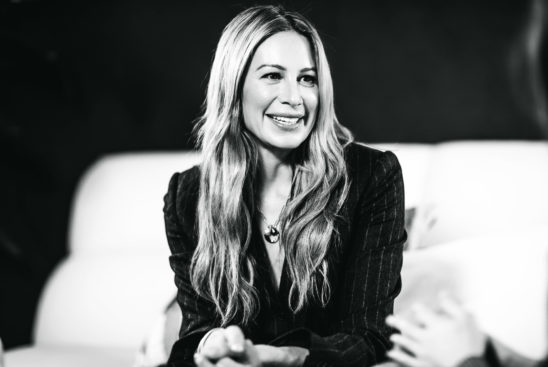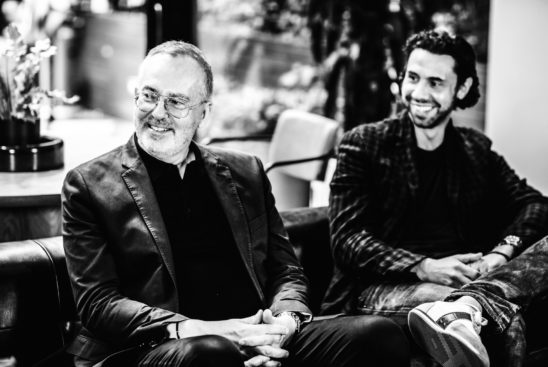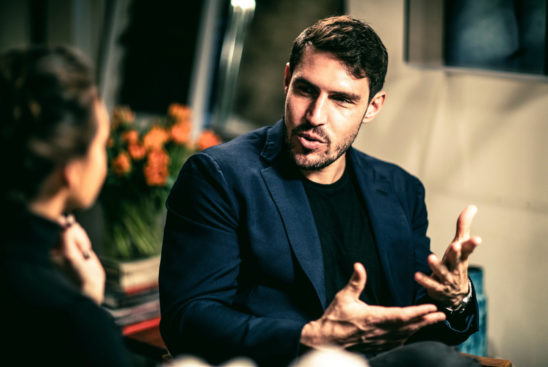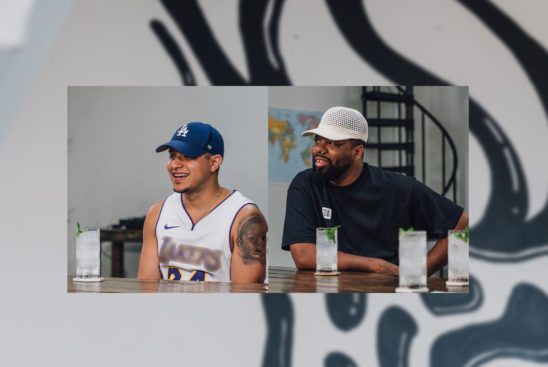You were brought onboard as the artistic director of the Chicago Children’s Choir 14 years ago, how did you get started here?
I started here when I was 22. I just finished grad school at Northwestern and—it’s kind of a sad story—my mom was diagnosed with colon cancer so I needed a job. I had been working my whole life; playing in churches, singing and I started conducting at age 15. I heard about the Chicago Children’s Choir so I checked it out. I came downtown and they’re like, “We have a job for you. We’re going to send you into seven Chicago public schools and two neighborhood choirs and we want you to go conduct them.” I drove into the South side and went to this school called the Academy of St. Benedict. It’s an all African American choir and I walked in and they go, “Ms. Lee, you look like Pocahontas!” I said, “Well thank you,” and they said, “And you fat.” I thought, “I’m fat? Do I have to lose some weight?” They meant P-H-A-T. It was love at first sight. At 23 they named me artistic director and I’ve been here ever since.
Given the role at such a young age, have you always had a distinct vision for the choir or did you just take it day-by-day?
When I came into the organization—a 50-year-old organization founded during the height of the Civil Rights Movement when blacks and whites couldn’t get along—the founder Christopher Moore said, “I’m going to bring these children together so they can celebrate their differences and create a better world.” So that was the whole founding principle. The choir had this great social mission, thousands of kids coming together and learning about each other. It doesn’t matter if you’re fat or tall, whether you’re from a Muslim country or Christian, it’s all about how we feel when we sing together and how we can create peace. But the discipline wasn’t there. The founder always wanted to have excellence so when I came in I was like a hurricane. I mean, literally they called me crazy names but I was like, “You’re going to talk? Then you should leave.”
So you were strict?
Very strict! And that’s the thing, you give them expectations and when they rise to it then they will achieve something, something great. We need to create an environment for them so they can thrive and create and become excellent citizens of the world.
You must have students that you’ve watched go on to accomplish great things over the years.
So many. You know, they are all so different. Some of them go on to Ivy League schools and become the next scientist or do this start-up or they are professors at University of Singapore or MIT grads and then there are kids that just go to their community college and they are giving back in their own way.
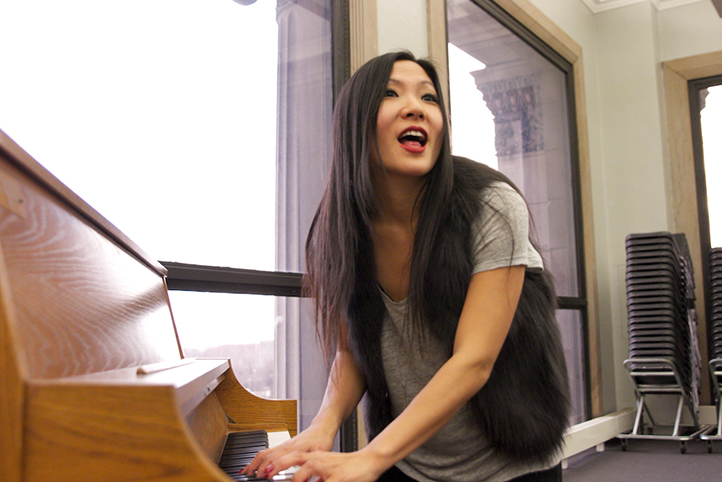
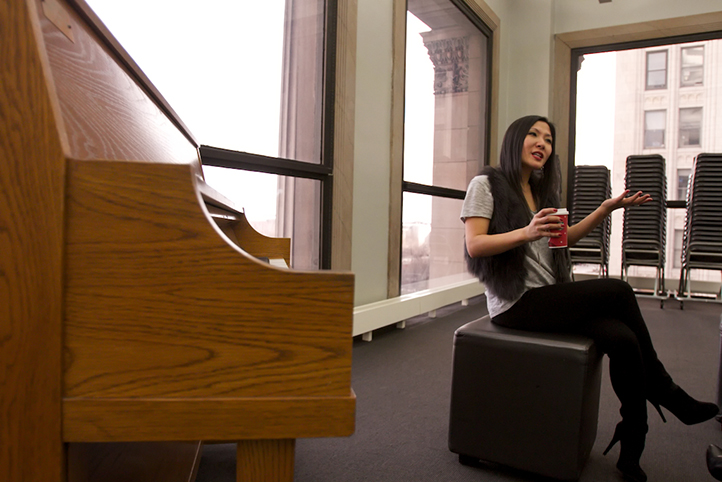
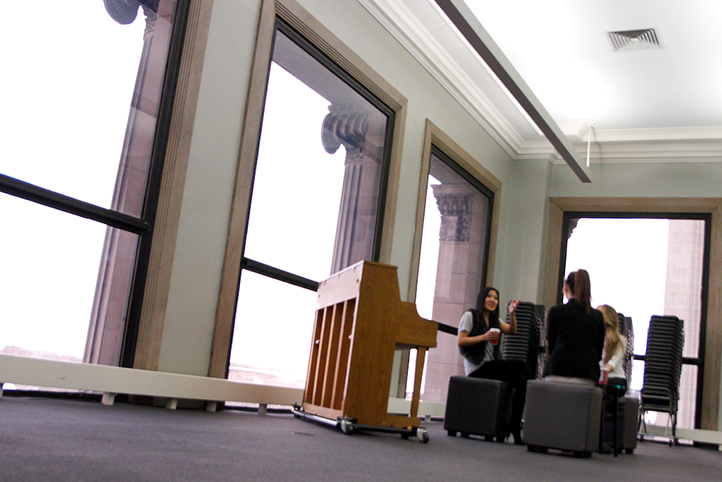
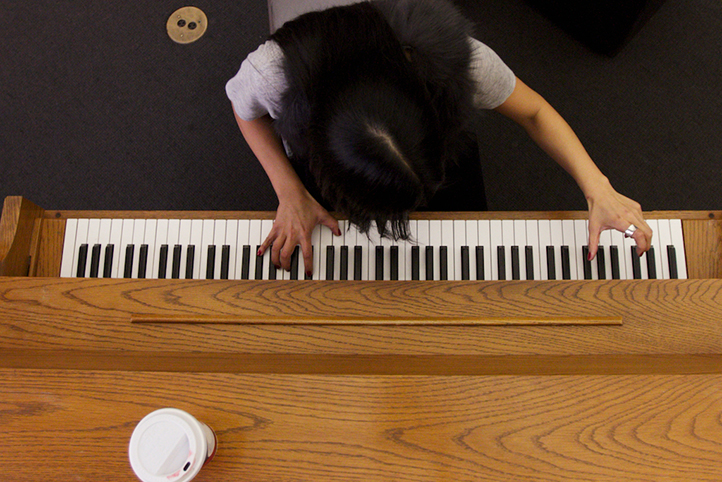
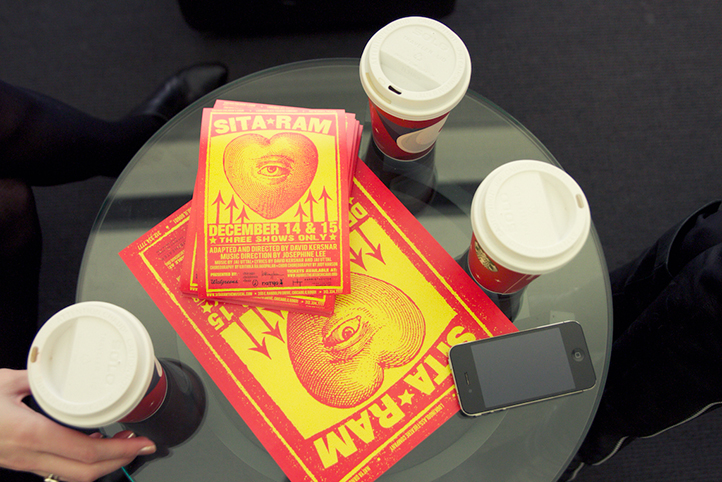
Your current musical “Sita Ram” reflects on the different cultures and rich diversity here within the city of Chicago. What excites you the most about a project like this?
“Sita Ram” was created ten years ago. I commissioned a man named David Kersnar. He’s from the Lookingglass Theatre Company and he and I had collaborated on a opera for the children. After seeing the kids come alive theatrically in opera [we created “Sita Ram”]. This is beyond theater. It’s theater plus music, plus singing, plus dance, plus acrobats, plus costumes. I mean, who gets to wear high-end designer couture clothes at 16? That’s when I said, “We need to create something now for our time. Let’s tell a story.” If you are going to spend money and spend your time [to go to the theater], let’s tell a story that is going to change the world. So David looked up world stories and found out about “Ramayana”, which is this Hindu ancient epic; a 3,000-year-old story about peace, love, the good and evil in us all and the choices we make. It’s a love story.
Do you have a specific production that made you fall in love with theater?
Yes! Several. I love the movie “Amadeus”. “Amadeus” is the story of Mozart. Mozart was an absolute lunatic, a crazy man! But you know, like every genius, he had that side of him. I was moved by that. “The Magic Flute” was the first opera I ever saw. I also loved “The Lion King”.
When did you begin playing musical instruments?
Apparently at the age of 3 I asked to play the violin and then the year after I asked to quit and my mom said, “There is no way you are quitting this instrument at age 4! You’re going to play the piano and violin and continue it and sing until high school.”
Do you have any siblings?
I’m an only child, born and raised in Chicago but of Korean descent. My parents passed away with [the events of] 9/11 sandwiched in between. My mom died of colon cancer in April then my father had a heart attack in triple bypass surgery in November. It was an epic year! I thought to myself, “Why am I even here?” I literally had that moment, you know, when you reflect upon your life … I never thought I was going to work with the Chicago Children’s Choir. I thought, “I’m a classical pianist and I’m going to write my own music. I’m going to conduct orchestras.” I realized after their passing what greater reward was there than to nurture the next generation and teach them? Because it is about the children and the future. We are only here temporarily. What gifts do we want to leave behind? What’s our legacy?
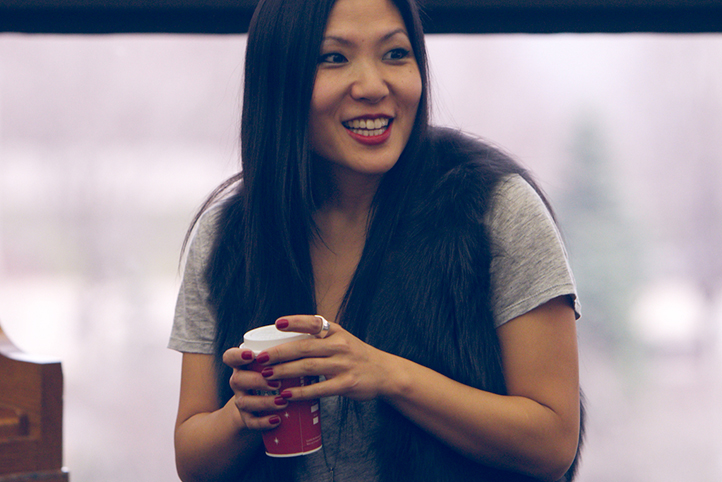
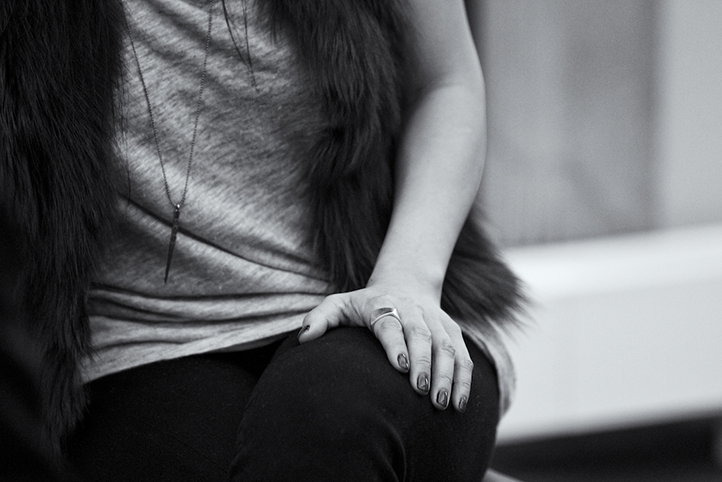

You and your family live in Lincoln Park. Where did you meet your husband Kevin?
We met backstage at “Cirque du Soleil”.
Do you cook?
My husband cooks. He’s an amazing cook. I love eating at home!
When you do go out to eat, what are your favorite restaurants?
I love anything Nick Kokonas does. I also love anything Kevin Boehm and Rob Katz do.
When listening to the radio, who do you turn up?
I love Adele. I’ve been into Bruno Mars. I think he’s so talented. I love Björk, but I’ve kinda gotten over my Björk phase.
If you could have a drink with anyone, who would it be?
I really would love to meet Beethoven because he completely revolutionized classical music. He inserted a funeral march in his third symphony “Eroica”, so when he premiered it people were throwing their money at him because they were so pissed! So can you imagine what it’s like to perform in that era and to really break the boundary? And he was deaf when he composed “Symphony No. 9”. I think he is extraordinary … And I would love to talk to Angelina Jolie.
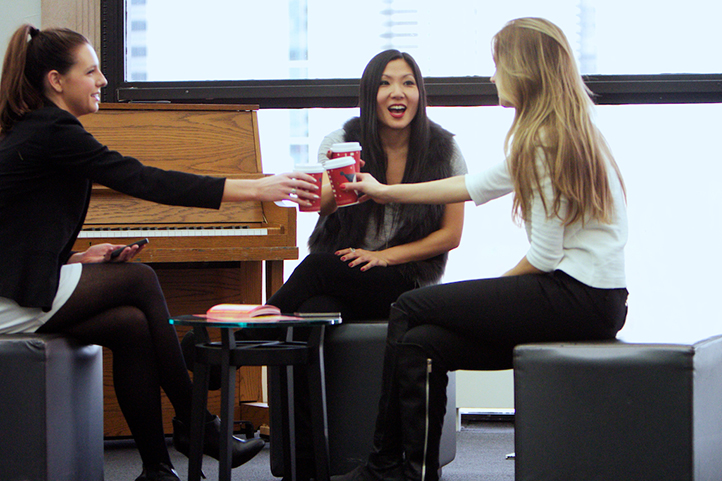 Photography by Tyler Curtis
Photography by Tyler Curtis
Did you enjoy this feature? Subscribe to our newsletter and never miss a drink, we promise we’ll never spam you!

